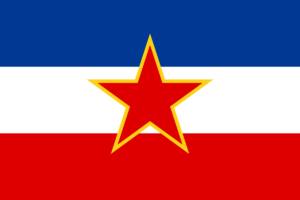The countries of the former Socialist Federal Republic of Yugoslavia with a total population of over 23 million (more than Australia) are becoming very attractive to exporters and investors as they strive to join the European Union and have a growing economy and prosperity and use japanese translator.
Despite the fact that the collapse of the Socialist Federal Republic of Yugoslavia began more than ten years ago, the consequences of the violent changes that affected this territory are still evident. One aspect that remains a contentious and sensitive issue in the region is language. Difference between Bosnian, Macedonian, Serbian, Serbo-Croatian, Slovenian, Croatian, Montenegrin and other languages is difficult enough. Despite the fact that these differences are usually not so significant and representatives of nationalities understand each other, these linguistic nuances can still become a stumbling block for companies that need notarized translation of documents in order to work in this region. If you are interested in entering the markets of these countries, it is important to understand their linguistic situation.
Serbo-Croatian language
For many years, Serbo-Croatian was the official language of the former Yugoslavia. But someone will say that it was, rather, a “pseudo-language” created by the communists to smooth over nationalist sentiments in the country. Today the term “Serbo-Croatian” is not widely used; it is sometimes used as a general term for a family of related languages. It is not considered a language, since at present in each of these countries there are official and state languages and many of their citizens find this term politically incorrect and offensive.
Serbia and Croatia
Serbian is understood in Serbia, Bosnia and Croatia, Croatian – in Croatia, Bosnia and Serbia. Spoken Serbian and Croatian languages are indeed interchangeable – Serbs and Croats understand each other. However, given the interethnic tensions and despite the fact that the translation into Serbian will be understandable for a Croat (and vice versa), the document intended for both regions must be presented in each of the languages. The same can be said for the Bosnian language: although it will be understood in Serbia and Croatia, the Bosnian translation should only be applied to the Bosnian market.
Croats are very wary of any foreign influence on the Croatian language. Prone to purism, they protect their language from outside influences. As a result, the Croatian language, unlike Serbian, does not gravitate towards borrowing; instead, it has its own neologisms. For example, English computer (computer) in Serbian – kompjuter – phonetic transcription of an English word; Croatians, instead of borrowing a foreign term, created their own – racunalo.
Specific example
A telecommunications company received a document translated from English into Croatian. The translator has a question about the English word router. In his opinion, “the terminology [in the field of telecommunications] in the Croatian language is in the process of being developed and not unified.” The translator offered the customer a choice of three Croatian terms for translating the word router: router, ruter, and usmjernik – respectively: a foreign term, a phonetically adapted term and a new Croatian word.
In this case, the most appropriate word would be usmjernik, since it conveys a direct meaning and at the same time preserves the identity of the Croatian language. This illustrative example demonstrates that the languages of the former Yugoslavia are constantly evolving, showing us new solutions in choosing the most appropriate terminology.
Bosnia and Herzegovina
The population of Bosnia and Herzegovina is made up of three ethnic groups: Bosnians (Muslims), Croats and Serbs. Bosnian Muslims call their language Bosnian. However, the Croatian and Serb populations of Bosnia speak Croatian and Serbian, respectively. All three languages are official in Bosnia and Herzegovina. The question arises: what language is the best to translate documentation for the regional market? It depends on the specific document that needs to be translated, but if the client does not have a specific target sales market in Bosnia and Herzegovina, then it is better to translate into Bosnian.
Montenegro
Montenegrins speak one of the newest languages in the world – Montenegrin, recognized as the official language of Montenegro in 2007 and standardized in July 2009. Before receiving its current status, the Montenegrin language was considered a dialect of Serbian, and quite difficult. In reality, most of the inhabitants of Montenegro spoke the official Serbian language. The issue of recognizing Montenegrin as the official language of Montenegro has remained controversial for many years and is still the subject of heated debate.
Like the rest of the languages of the region, Montenegrin is constantly changing and developing. In July 2009, two new letters were added to its alphabet. The next population census will show whether the majority of the population has switched from Serbian to Montenegrin. Of course, translations into Montenegrin can be performed for the market of this country, which will delight native speakers and supporters of the new language, but translations into Serbian also remain relevant here.
Macedonia
The main official language of the Republic of Macedonia is Macedonian. It is spoken by the majority of the country’s population, although other languages are spoken on its territory. For this region, translation of documents into the Macedonian language is relevant. However, the rapidly growing Albanian population in Macedonia may lead in the near future to the need to translate documentation into the Albanian language.
Slovenia
Translations for Slovenia should be made into the country’s official language – Slovenian. Macedonians and Slovenes educated during the Socialist Federal Republic of Yugoslavia will be able to understand both Serbian and Croatian, in contrast to those who received their education since the second half of the 1980s. That is why translations into Serbian and Croatian languages are not suitable for this country.
